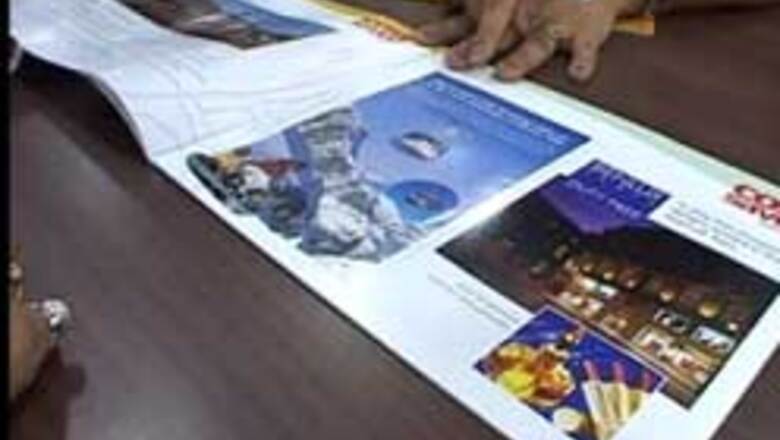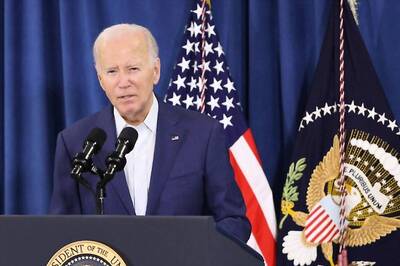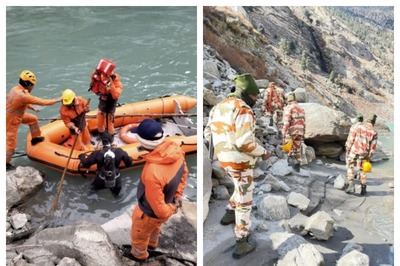
views
Mumbai: The bad news just doesn’t seem to end for 62-year-old Cyrus Korakhiwala (name changed on request), a Mumbai-based travel agent. In the last few months he has seen his margins erode steadily.
First, the hike in air fares, amidst stock market crashes and bomb blasts in Indian cities, saw a drastic drop in passenger traffic. Then his biggest client, the Indian office of a multinational bank, switched to economy seats in a bid to cut costs. And now the death knell.
India’s biggest air carriers - National Aviation Company of India (Nacil, which represents the erstwhile Air India and Indian), Jet Airways and Kingfisher Airlines - announced that come November, they will no longer pay agents the 5 per cent commission on each ticket booked.
Instead, Korakhiwala and his peers can charge their customers a transaction fee on each ticket. The three airlines recommend a per ticket fee of Rs 350 for economy and Rs 500 for executive class.
“This is like working for free. Why should a customer, instead of the airline, pay the extra money? Will you pay an extra rupee for a bottle of cold drink if the shopkeeper asks you,” asks Korakhiwala.
Almost 80 per cent of his revenue of Rs 1.5 crore a month comes from booking tickets for companies whose executives fly for work and holidays. Though the clients, “also long-time friends”, have assured him that they are ready to renegotiate, he fears that economic sense might prevail over personal sentiments.
“Already, most of these companies are cutting costs in the present slowdown. And there are bigger travel agents who will be able to give higher discounts,” says Korakhiwala.
Most of these bigger agents, called wholesalers because of the huge number of tickets they handle, charge less than 1 per cent commission on tickets. In a zero commission regime, they will be able to charge lower transaction fee too--something Korakhiwala can’t afford to do. He is now beginning to realize that he may have to shut shop.
“That will be the last option. I have already sent off three of my employees to cut costs. I own this office space (located in South Mumbai). So maybe I can rent out the space after closing the travel business. I will easily get Rs 1.5 lakh a month from the rent--more than what I pocket from the travel business right now,” he says.
Korakhiwala though might consider himself lucky. According to Ajay Prakash, national general secretary of Travel Agents Federation of India (TAFI) - one of the two industry bodies - about 8,000 of the 10,000 travel agents in the country do not have any alternative source of livelihood and would be forced to shut down.
In fact, only about 3,000 of the total travel agents are affiliated to TAFI or its bigger peer, Travel Agents Association of India (TAAI).
“Few of these would survive. As for the rest, the unaffiliated ones, they do not even realize what has hit them,” warns Prakash, who also runs travel agency Nomad Travels in Mumbai.
Raja Graham didn’t and is struggling to find an alternative. He owns Graham Travels, the bigger of the two ticket agencies in Sivakasi, the fire crackers-manufacturing hub in Tamil Nadu.
To break even, he needs to book 150 tickets a month and is dependent on the 5 per cent commission. But now that cushion has also been taken away.
“Though my customers have agreed to pay the extra Rs 350 per ticket, it is not enough to cover my costs as earlier I used to earn an average of Rs 500 on every ticket. I will see how it goes for another two to three months. I think I will have to wind up by March. There is no future in this business anymore,” says Graham.
At 42, he feels “it is not an age where I can again start a business”.
Chairperson of the Mumbai chapter of TAFI, Vasuki Sundaram, has been getting similar responses from across the country.
“An agent from Agartala sent a mail saying that the only option for him is to join the next door shoe shop,” says Sundaram, who also owns Wings Travel & Tours.
She tells another story of an agent from Pune, underlining the prevalent desperation among travel agents.
“He was undercutting everyone’s business, including mine, by offering packages at unheard of rates. But within three months, he was neck-high in debt and took the only option out - he committed suicide,” Sundaram says with a look in her eyes that warns, “There will be more of this.”
Travel agents like Sundaram are holding out for the moment, defying the directive of the big three airlines. Many have put Nacil, Jet Airways and Kingsfisher Airlines in their least preferred list.
“Only if the customer insists do we opt for one of these three. Of course, the customer agrees to pay the transaction fee,” says an agent on condition of anonymity.
Industry experts have been asking travel agents to diversify to survive, but many feel it won’t help. “What diversify? Most of us are already offering holiday packages, cab services and hotel booking,” adds Sundaram.
Their only hope now lies with the Kolkata High Court. The agents plan to appeal against the Court’s ruling last week that went in favour of the airlines. The next hearing is on December 8.
“We will fight as it is the only option,” declares Sundaram. When told that other countries like the US have already accepted the change, she asks, “How can you compare the Indian market with the western…instead compare it with the eastern markets,” she says.
Adds Marzban Antia of Mumbai-based Avesta Travel & Tours, “In India, 85% of the tickets are booked by agents like us. Whereas in the US, credit cards are used to book 99 per cent of the tickets (online). How can you compare the two?”
Even so, more than half the travel agents in the US had to shut shop when commission was abolished almost a decade ago. But Indian agents point out that the commission practice still remains in other developed countries such as Japan and Greece and closer home, in China.
“The governments there have made sure that the agents get the commission. But in India, we are yet to be heard,” says Prakash.
Still, industry observers like Kavi Ghei of TRAC Representatives, a tourism management company, reckon that the dynamics of this business is going to change. “Airlines are losing money and are looking to reduce costs and they want to shift a lot of ticketing to online. This will benefit online travel agents like cleartrip.com and makemytrip.com. These online companies will see their share of the market increase by about 40 per cent,” says Ghei.
While a few of the agents like Korakhiwala and Graham are contemplating closing down, others like Prakash are looking to alter their business model. “I have been talking with a few of my industry friends. We might pool in and form a consortium, which will give us the scale,” he adds.
Like the wholesalers, pooling of resources will help them increase the number of tickets they book and thereby survive on thin margins. But for now, it is wait and watch till December 8. That’s when the fate of the Rs 35,000 crore air ticketing industry and its 3 lakh jobs would be decided in the Kolkata High Court.
Prince Mathews Thomas is a Special Correspondent with the new business magazine to be launched by Network 18 in alliance with Forbes, USA.




















Comments
0 comment